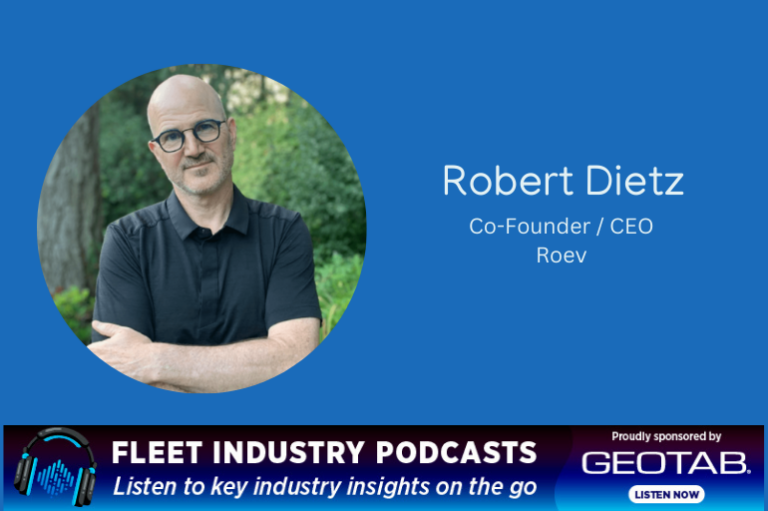Robert Dietz, Co-Founder and CEO of Roev, sat down to discuss his company’s journey from EV conversions to a pioneering software platform tailored for fleet electrification. Roev’s story begins with an ambitious plan to convert traditional vehicles into electric ones, addressing a clear gap in the Australian automotive market. Today, the company has pivoted towards a software-driven approach, providing fleet managers with tools to streamline their transition to electric vehicles (EVs) while maximising cost efficiency and sustainability outcomes.
From EV Conversions to Software
Roev’s initial focus was on converting late-model Toyota Hilux vehicles into EVs, a decision driven by market demand and technical challenges. “Australia has long been a dumping ground for inefficient vehicles,” Dietz explained. The Hilux, a staple in Australian fleets, was an ideal candidate due to its ubiquity and the unmet demand for electric utility vehicles. However, Dietz acknowledged the technical hurdles, including the complexity of integrating modern vehicles’ CAN bus systems with new electric powertrains.
Despite interest from fleets, including pre-orders worth over $40 million, challenges arose. Engineering complexities, the high cost of goods, and a shifting capital market environment made scaling the conversion business difficult. “The capital markets were collapsing, and the appetite for risk was diminishing,” Dietz noted.
The Pivot to Software
As Roev navigated these obstacles, the team identified a significant unmet need: fleet managers required data-driven insights to optimise their transition to EVs. Roev began developing a software platform capable of analysing existing fleet data, starting with fuel card information, to recommend cost-effective and emission-reducing transitions.
“Fleet managers were asking which vehicles in their fleet should transition first and how charging infrastructure should be planned,” Dietz said. “We realised we could use software to answer these questions, providing actionable insights while reducing the perceived risks of electrification.”
Unlocking the Power of Data
Roev’s software transforms fleet fuel card data into actionable insights, identifying the vehicles most suitable for electrification based on fuel consumption patterns, duty cycles, and potential cost savings. The platform incorporates artificial intelligence (AI) to extrapolate additional insights, such as public charging availability and energy costs.
“Fuel cards are a universal tool for fleets,” Dietz explained. “We use this data to build a unified fuel profile, helping managers understand not only which vehicles to electrify but also the most cost-effective way to charge them.”
The platform’s intuitive design offers multi-stakeholder utility, allowing fleet managers, sustainability officers, and CFOs to collaboratively plan transitions. “It’s not just about data—it’s about providing a shared source of truth,” Dietz emphasised.
Addressing Common Concerns
One of the significant barriers to fleet electrification is the variability of energy costs. Dietz highlighted the disparities between home charging, depot charging, and fast charging, noting that costs can range from as low as 8 cents per kilowatt-hour to over 60 cents. Roev’s software provides clarity by tracking energy usage across all charging locations and offering cost projections for various scenarios.
The system is equally adept at accommodating hybrid vehicles, helping managers navigate the complexities of fuel and energy consumption. “A plug-in hybrid can be incredibly cost-effective if charged regularly,” Dietz pointed out. “But if it’s only running on petrol, those savings disappear.”
A Future-Ready Solution
Roev’s rebrand reflects its pivot towards a software-first approach, but Dietz hinted that the door hasn’t completely closed on EV conversions. Advances in technology, such as pre-configured CAN bus integration solutions, could eventually streamline the conversion process and make it viable at scale.
For now, the company’s primary focus is on its software platform, which aims to be the go-to tool for managing mixed fuel fleets in an evolving market. By offering detailed insights into vehicle efficiency, energy costs, and emissions reductions, Roev empowers fleet managers to make informed decisions that align with their operational and sustainability goals.
Market Launch and Next Steps
Roev debuted its software at Mobility Live in Melbourne, where it received positive feedback from fleets, councils, and original equipment manufacturers (OEMs). Dietz reported ongoing conversations with various stakeholders, each recognising the platform’s potential to address their specific needs.
As Roev looks to scale in the coming year, the company is focused on expanding its feature set and onboarding new clients. “We’re building a product that saves time, reduces risks, and delivers measurable benefits,” Dietz said.
Roev’s journey from EV conversions to fleet management software demonstrates the power of adaptability and innovation. By focusing on actionable insights and practical solutions, the company is helping to accelerate the transition to cleaner, more efficient fleets.
For fleet managers grappling with the complexities of electrification, Roev’s software offers a clear path forward—one that simplifies decision-making and maximises returns on investment. As Dietz aptly put it, “Data for action is what transforms challenges into opportunities.”






